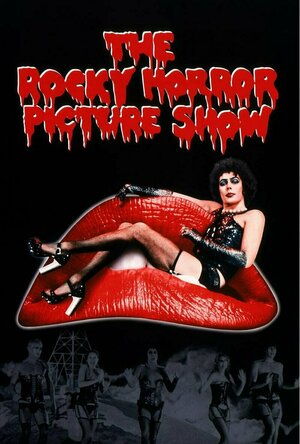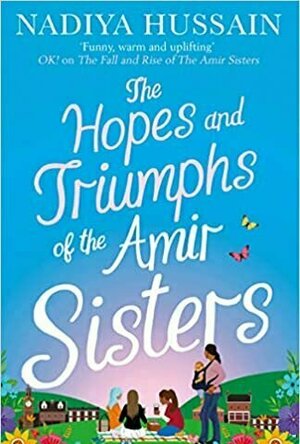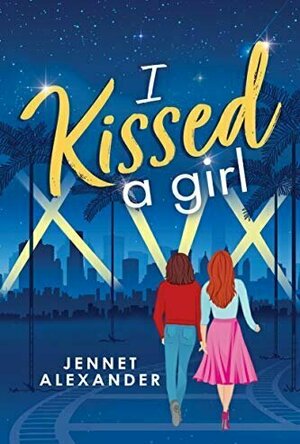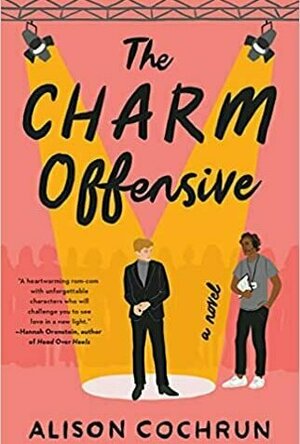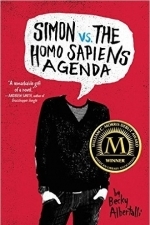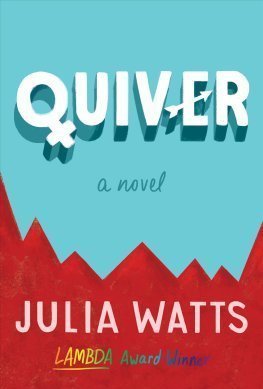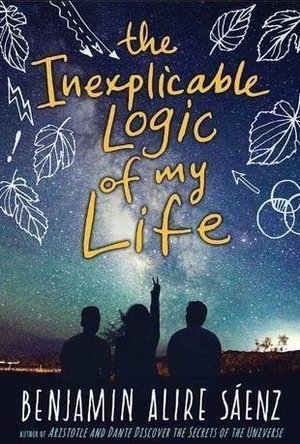Search
Sarah (7800 KP) rated The Rocky Horror Picture Show (1975) in Movies
Nov 25, 2020
Gloriously kitsch
Film #4 on the 100 Movies Bucket List: The Rocky Horror Picture Show
The Rocky Horror Picture Show is a bonafide cult classic and I doubt there is anyone who would disagree with this. It flopped on first release at the cinema but soon after gained a massive cult following and became a hugely interactive musical experience. For me, I became part of this cult following at university and have attended a fair few parties and shows over the years (in fancy dress of course). However it’s been quite some time since I watched this and seeing it again now makes for a rather interesting watch.
The Rocky Horror Picture Show is a 1975 musical directed by Jim Sharman, spanning a multitude of genres. It follows newly engaged (and rather wholesome) couple Brad (Barry Bostwick) and Janet (Susan Sarandon) as a flat tyre leaves them stranded and they’re left to seek shelter in a nearby castle owned by Dr Frank-N-Furter (Tim Curry).
This film is undoubtedly bats**t crazy. The plot is absolutely bonkers – a group of aliens from the planet Transexual led by a mad scientist in his quest to make the perfect man. It spans so many genres from comic horror to glam-rock musical and everything in between. It’s aim to spoof old school science fiction films is spot on, and there isn’t many films that can pull off cannibalism, murder and erotic sexual experimentation in the same 2 hour run time.
Admittedly there are some aspects of the plot that haven’t quite stood the test of time. 45 years ago the freedom exhibited around gender and sexuality was unlike anything anyone had ever seen and is still a rather wonderful thing to watch. However, there are other sides to this (such as lack of consent) which have become more apparent as society evolves and maybe aren’t quite acceptable now as they were back then. Fortunately this doesn’t spoil the overall feel of the film and it’s still as camp and cheesy and kitsch as it ever was.
One of the reasons for this films success is Richard O Brien’s script and music, and his performance as Riff Raff is pretty creepy and fun too. It’s clever and smart, and the music is top notch. The songs are some of the most catchy I’ve ever heard and they make you forget how crazy the plot is as soon as the music starts. From the legendary Time Warp to the wonderful Meat Loaf cameo on Hot Patootie, to the incredibly moving and inspirational Don’t Dream It, Be It, the songs are hugely memorable.
And then you have Tim Curry as Frank-N-Furter, in an absolute standout performance. He is perfect in Frank (I’ve yet to see anyone do it better) and it’s probably the best role he’s ever had. He looks like he’s having so much fun and steals every scene, you can’t take your eyes off him and that’s not just because he’s in stockings and suspenders. He makes you feel fascinated by Frank, disgusted and then ultimately sorry for him and this is no mean feat. No disrespect to the rest of the cast, but when Curry isn’t on screen the film does suffer ever so slightly.
The Rocky Horror Picture Show is a wacky, campy riot of a musical with a message that is heartwarming and inclusive. It may have aged a little over the years and certain topics don’t scrub up quite as well, but it’s still a hugely entertaining and unique musical experience.
The Rocky Horror Picture Show is a bonafide cult classic and I doubt there is anyone who would disagree with this. It flopped on first release at the cinema but soon after gained a massive cult following and became a hugely interactive musical experience. For me, I became part of this cult following at university and have attended a fair few parties and shows over the years (in fancy dress of course). However it’s been quite some time since I watched this and seeing it again now makes for a rather interesting watch.
The Rocky Horror Picture Show is a 1975 musical directed by Jim Sharman, spanning a multitude of genres. It follows newly engaged (and rather wholesome) couple Brad (Barry Bostwick) and Janet (Susan Sarandon) as a flat tyre leaves them stranded and they’re left to seek shelter in a nearby castle owned by Dr Frank-N-Furter (Tim Curry).
This film is undoubtedly bats**t crazy. The plot is absolutely bonkers – a group of aliens from the planet Transexual led by a mad scientist in his quest to make the perfect man. It spans so many genres from comic horror to glam-rock musical and everything in between. It’s aim to spoof old school science fiction films is spot on, and there isn’t many films that can pull off cannibalism, murder and erotic sexual experimentation in the same 2 hour run time.
Admittedly there are some aspects of the plot that haven’t quite stood the test of time. 45 years ago the freedom exhibited around gender and sexuality was unlike anything anyone had ever seen and is still a rather wonderful thing to watch. However, there are other sides to this (such as lack of consent) which have become more apparent as society evolves and maybe aren’t quite acceptable now as they were back then. Fortunately this doesn’t spoil the overall feel of the film and it’s still as camp and cheesy and kitsch as it ever was.
One of the reasons for this films success is Richard O Brien’s script and music, and his performance as Riff Raff is pretty creepy and fun too. It’s clever and smart, and the music is top notch. The songs are some of the most catchy I’ve ever heard and they make you forget how crazy the plot is as soon as the music starts. From the legendary Time Warp to the wonderful Meat Loaf cameo on Hot Patootie, to the incredibly moving and inspirational Don’t Dream It, Be It, the songs are hugely memorable.
And then you have Tim Curry as Frank-N-Furter, in an absolute standout performance. He is perfect in Frank (I’ve yet to see anyone do it better) and it’s probably the best role he’s ever had. He looks like he’s having so much fun and steals every scene, you can’t take your eyes off him and that’s not just because he’s in stockings and suspenders. He makes you feel fascinated by Frank, disgusted and then ultimately sorry for him and this is no mean feat. No disrespect to the rest of the cast, but when Curry isn’t on screen the film does suffer ever so slightly.
The Rocky Horror Picture Show is a wacky, campy riot of a musical with a message that is heartwarming and inclusive. It may have aged a little over the years and certain topics don’t scrub up quite as well, but it’s still a hugely entertaining and unique musical experience.
Ivana A. | Diary of Difference (1171 KP) rated The Hopes and Triumphs of the Amir Sisters in Books
Oct 5, 2020
The Hopes and Triumphs of the Amir Sisters by Nadiya Hussain was on my TBR, but I didn’t have the paperback version of the book yet. When I noticed there is an audiobook available from my library, I decided to go ahead and listen to it while I was solving my jigsaw puzzle.
The Hopes and Triumphs of the Amir Sister is the third book in a series that features the Amir sisters. In this book the spotlight is on Mae, the youngest sister of them all. I haven’t read the other two books, but I hope they are better than this one.
Mae was a very annoying character.
And the fact that she was the main character in this book was probably the main reason I didn’t enjoy listening to this book. She has grown up watching her sisters be in the spotlight, living their lives, getting married, having children. She has always been there to help them with everything they might need, because that is her responsibility as their sister.
When Mae heads to university, she fails to fit into any group and make friends. Whenever she goes home and tries to talk about her university life, her stories are lost to the more important stories of her sisters and their babies. Mae feels angry and upset, which leads to her making some decisions that are perhaps unlike her, and also hide some important news from the whole family.
I think the whole family had many issues as a whole, and each individual member had problems on their own.
It is possible that I have never read about a more dysfunctional family that doesn’t work together, but pretends it does. I have seen families that just accept the fact that something is wrong. But this family just keeps going in this weird direction, and it made me uncomfortable throughout the whole journey.
The book in itself handles a lot of sensitive topics, such as sexual advances, public shaming on social media when women put makeup on the train, racism, sexuality, religion, cultural beliefs etc. I felt that this was the only bright spot in the book, to make the readers aware of what is happening, and how some characters respond to it.
Mae was the character I couldn’t relate to the most. Her thoughts and opinions, her way of seeing life was just something I did not agree with. I can understand that she might have been living in a bubble her whole life before moving to university. However, to be so unaware of the outside world and the people around it was just beyond me. I couldn’t agree with how she accepted defeat as something that comes to her by default, and how she was so uninterested to do anything that can make her happier. Refusing to improve in any way is a big character flaw, and I cannot agree with it.
Honestly, I did not enjoy The Hopes and Triumphs of the Amir Sisters.
I am not sure why, but there was so much unnecessary drama, without any real reasoning behind it. Perhaps the fact that I consumed this book as an audiobook has something to do with it as well. The narrator’s voice was really annoying and high-pitched.
The ending was average and very predictable. I didn’t feel as if the characters actually learnt anything in particular about themselves or each other. In conclusion, this book was not for me and I didn’t enjoy it.
The Hopes and Triumphs of the Amir Sister is the third book in a series that features the Amir sisters. In this book the spotlight is on Mae, the youngest sister of them all. I haven’t read the other two books, but I hope they are better than this one.
Mae was a very annoying character.
And the fact that she was the main character in this book was probably the main reason I didn’t enjoy listening to this book. She has grown up watching her sisters be in the spotlight, living their lives, getting married, having children. She has always been there to help them with everything they might need, because that is her responsibility as their sister.
When Mae heads to university, she fails to fit into any group and make friends. Whenever she goes home and tries to talk about her university life, her stories are lost to the more important stories of her sisters and their babies. Mae feels angry and upset, which leads to her making some decisions that are perhaps unlike her, and also hide some important news from the whole family.
I think the whole family had many issues as a whole, and each individual member had problems on their own.
It is possible that I have never read about a more dysfunctional family that doesn’t work together, but pretends it does. I have seen families that just accept the fact that something is wrong. But this family just keeps going in this weird direction, and it made me uncomfortable throughout the whole journey.
The book in itself handles a lot of sensitive topics, such as sexual advances, public shaming on social media when women put makeup on the train, racism, sexuality, religion, cultural beliefs etc. I felt that this was the only bright spot in the book, to make the readers aware of what is happening, and how some characters respond to it.
Mae was the character I couldn’t relate to the most. Her thoughts and opinions, her way of seeing life was just something I did not agree with. I can understand that she might have been living in a bubble her whole life before moving to university. However, to be so unaware of the outside world and the people around it was just beyond me. I couldn’t agree with how she accepted defeat as something that comes to her by default, and how she was so uninterested to do anything that can make her happier. Refusing to improve in any way is a big character flaw, and I cannot agree with it.
Honestly, I did not enjoy The Hopes and Triumphs of the Amir Sisters.
I am not sure why, but there was so much unnecessary drama, without any real reasoning behind it. Perhaps the fact that I consumed this book as an audiobook has something to do with it as well. The narrator’s voice was really annoying and high-pitched.
The ending was average and very predictable. I didn’t feel as if the characters actually learnt anything in particular about themselves or each other. In conclusion, this book was not for me and I didn’t enjoy it.

WebProtectMe Safe Browser with Parental Control
Productivity and Utilities
App
WebProtectMe Safe Browser(tm) is the best parental controls and security browser, providing your...
Kristy H (1252 KP) rated I Kissed a Girl in Books
Aug 12, 2021
A fun movie set romance
Noa Birnbaum's dream is to work in the movies: in horror special effects and makeup. She finally gets a chance to work on a real movie (one step closer to joining the union), but it means dropping out of school, where she's earning her theater degree. Her parents won't be pleased. On the set, she's face to face with actress Lilah Silver, whom Noa has had a crush on for ages. Lilah has her own dreams, to move beyond B-list horror films and into true stardom. This starring role as the "final girl" could be her opportunity. When she meets openly out Noa, Lilah may finally have a chance to admit to her own bisexuality. But a relationship could have its own problems for both Lilah and Noa.
"Noa'd thrown away everything else in her life for this job. And now she was seriously considering throwing the job away for a chance at a girl? Stupid beyond words."
This is a cute story whose strength comes across in its representation--queer characters covering bi, trans, lesbian and more. There's also some excellent Jewish representation, as both Noa and Lilah bond over their religious beliefs. As a member of the LGBTQIA community, I love seeing stories that reflect myself and my friends. Watching Lilah grapple with her bisexuality and coming out and seeing Noa hang out with her friends, being openly out and accepted. These are still stories and characters we do not get to see and read about regularly. Even better, it seems like I read a lot of queer YA books, not a lot where the characters are adults (although they might not always act like it in this story, ha). It was fun and refreshing.
"Special effects artist had never been on the list of things Good Jewish Girls Did."
For me, this book was a little long. It could have been a bit shorter and would have felt more snappy. A lot of the focus in this story is on miscommunication, which is a pet peeve of mine. I just can't handle when so much of the plot could be avoided if the characters just spoke openly to one another. It's also not entirely clear why Noa crushes so much on Lilah, to the point that it seems that she can't rationalize clearly. A lot of this inability to communicate or think clearly leads to some back and forth storylines, so it seems like as if the plot zigs and zags. Up and down. Will Noa go for a relationship with Lilah or keep her job? Is Lilah willing to risk her career for her sexuality? Again, if things had been just a bit shorter, we probably could have skipped a bit of this.
Still, this is a fun story. While Lilah and Noa can be frustrating sometimes, they are engaging characters. The horror film set adds an interesting level to the book (there's another plot line involving Lilah and threats to her safety). It's a little long, but I appreciated all the queer and Jewish rep. 3+ stars.
I received a copy of this book from Sourcebooks Casablanca and Netgalley in return for an unbiased review. It releases 8/3/2021.
"Noa'd thrown away everything else in her life for this job. And now she was seriously considering throwing the job away for a chance at a girl? Stupid beyond words."
This is a cute story whose strength comes across in its representation--queer characters covering bi, trans, lesbian and more. There's also some excellent Jewish representation, as both Noa and Lilah bond over their religious beliefs. As a member of the LGBTQIA community, I love seeing stories that reflect myself and my friends. Watching Lilah grapple with her bisexuality and coming out and seeing Noa hang out with her friends, being openly out and accepted. These are still stories and characters we do not get to see and read about regularly. Even better, it seems like I read a lot of queer YA books, not a lot where the characters are adults (although they might not always act like it in this story, ha). It was fun and refreshing.
"Special effects artist had never been on the list of things Good Jewish Girls Did."
For me, this book was a little long. It could have been a bit shorter and would have felt more snappy. A lot of the focus in this story is on miscommunication, which is a pet peeve of mine. I just can't handle when so much of the plot could be avoided if the characters just spoke openly to one another. It's also not entirely clear why Noa crushes so much on Lilah, to the point that it seems that she can't rationalize clearly. A lot of this inability to communicate or think clearly leads to some back and forth storylines, so it seems like as if the plot zigs and zags. Up and down. Will Noa go for a relationship with Lilah or keep her job? Is Lilah willing to risk her career for her sexuality? Again, if things had been just a bit shorter, we probably could have skipped a bit of this.
Still, this is a fun story. While Lilah and Noa can be frustrating sometimes, they are engaging characters. The horror film set adds an interesting level to the book (there's another plot line involving Lilah and threats to her safety). It's a little long, but I appreciated all the queer and Jewish rep. 3+ stars.
I received a copy of this book from Sourcebooks Casablanca and Netgalley in return for an unbiased review. It releases 8/3/2021.
Kristy H (1252 KP) rated The Charm Offensive in Books
Sep 2, 2021
A delightful reality show romantic comedy
Dev Deshpande works on the set of Ever After, a reality dating show he's loved since he was a kid. He truly believes in the show's premise of happily ever after, even as his own six-year-relationship with Ryan, a co-worker, ends. Then the show casts Charles Winshaw, a handsome millionaire tech genius as their next prince. Charlie has only agreed to come on the show to fix his awkward image, which has made it impossible for him to get another job in tech. He's terrible in front of the cameras and even worse with the women he's supposed to woo. Dev is assigned as his handler, a last ditch attempt to save Ever After. As he works to get Charlie to open up, the two connect, and realize that their chemistry is far better than anything Charlie has with his potential love interests. But Ever After demands a fairy tale ending--what does that mean for Charlie and Dev?
"And maybe then Dev will forget that in his own life, happily ever afters are never guaranteed."
This is a truly lovely book, with a great romance filled with crackling tension combined with excellent points about mental illness and being loved unconditionally (or not, as the case may be). I fell head over heels in love with both Charlie and Dev--they are wonderful characters, whom you grow attached to easily.
Dev truly believes in the romance of the show when no one else does--including his ex, Ryan, and Charlie. Yet sweet Dev does not feel worthy of the love he so fervently believes in and can only offer up what he terms "Fun Dev," a light, easygoing version of his personality that does not reflect his true self. Meanwhile Charlie struggles with OCD and anxiety. He has never been in a serious relationship or given himself a true chance to explore whom he likes. The two feel so real and are so well-written: they just fly off the pages. I don't watch the Bachelor and other type shows, but if you do, I'm sure you'll love this book. Even if you don't though, there's so much to enjoy in the dynamics of the story and the examination of the pros and cons of reality shows--a look at how they treat women, racism, sexuality, and more.
"Then again, it turns out Charles Winshaw is no one's definition of a Prince Charming, no matter how much he might look the part."
Cochrun writes and describes anxiety so well and truly mental illness as a whole. It's treated seriously and given the respect it deserves. There is so much great representation in this book, include ace. And while it covers serious issues, at heart, this is a romance, and oh, it's so cute! There's so much steamy, sexual tension between Charlie and Dev. So many hot scenes, so much love and wondering and flirting... they are adorable together! This book made me smile and laugh and cry; it's so wonderful written and just bursting with goodness.
I do think Charlie probably could have gotten a new job in tech without going on a reality show, but oh well. Overall, this is such an excellent read. It's a wonderful blend of serious and fun and flirty and a great exploration into love and what happily ever after really means.
"And maybe then Dev will forget that in his own life, happily ever afters are never guaranteed."
This is a truly lovely book, with a great romance filled with crackling tension combined with excellent points about mental illness and being loved unconditionally (or not, as the case may be). I fell head over heels in love with both Charlie and Dev--they are wonderful characters, whom you grow attached to easily.
Dev truly believes in the romance of the show when no one else does--including his ex, Ryan, and Charlie. Yet sweet Dev does not feel worthy of the love he so fervently believes in and can only offer up what he terms "Fun Dev," a light, easygoing version of his personality that does not reflect his true self. Meanwhile Charlie struggles with OCD and anxiety. He has never been in a serious relationship or given himself a true chance to explore whom he likes. The two feel so real and are so well-written: they just fly off the pages. I don't watch the Bachelor and other type shows, but if you do, I'm sure you'll love this book. Even if you don't though, there's so much to enjoy in the dynamics of the story and the examination of the pros and cons of reality shows--a look at how they treat women, racism, sexuality, and more.
"Then again, it turns out Charles Winshaw is no one's definition of a Prince Charming, no matter how much he might look the part."
Cochrun writes and describes anxiety so well and truly mental illness as a whole. It's treated seriously and given the respect it deserves. There is so much great representation in this book, include ace. And while it covers serious issues, at heart, this is a romance, and oh, it's so cute! There's so much steamy, sexual tension between Charlie and Dev. So many hot scenes, so much love and wondering and flirting... they are adorable together! This book made me smile and laugh and cry; it's so wonderful written and just bursting with goodness.
I do think Charlie probably could have gotten a new job in tech without going on a reality show, but oh well. Overall, this is such an excellent read. It's a wonderful blend of serious and fun and flirty and a great exploration into love and what happily ever after really means.
pheebs (3 KP) rated Simon vs. the Homo Sapiens Agenda in Books
Nov 23, 2017
The plot is progressive and thoroughly entertaining. (1 more)
The main character is a big fan of musical theatre, stars in Oliver (a play that I love)
Hands down the best biscuit is an oreo
Synopsis:Simon Spier is sixteen and trying to work out who he is – and what hes looking for. But when one of his emails to the very distracting blue falls into the wrong hands, things get all kinds of complicated. Because for Simon, falling for Blue is a big deal.
‘The love child of John Green and Rainbow Rowell’ – Teen Vogue
“The best kind of love story.”—Alex Sanchez, Lambda Award-winning author of Rainbow Boys and Boyfriends with Girlfriends
This book is a whirlwind of emotions, as soon as I finished scouring its pages I felt as if I had to read the book all over again, I did then abruptly lent it to a friend who found it just as amazing as I did. It’s a heartfelt story which really seems to capture the essence of being a teen in modern-day society, dealing with our problems, our worries, our trials and tribulations.
The main character is Simon, a boy who is finding life hard, with an overly happy family who like to be very involved and love to talk openly about their feelings, something that Simon is finding increasingly hard more specifically with his sexual preferences. The protagonist of the story is an unlikely fellow who creates dilemmas in Simon’s mind as he wishes to save his previous ‘Blue’. Simon is surrounded by bountiful characters that link smoothly into to his life an thoughts in a normal manner. We learn about his family through his fond memories and thoughts as well as the conversations they exchange in the book, the same can be said for his closest friends. He has three friends that stand out as more prominent characters, the book also focuses on how his relations with them change and how it affects them.
The book is written in a subjective narrative, it tells us only the information that Simon knows so that we know no more or less than him, equating to us having a possibly bias view towards certain characters, thus once again making it more realistic. It deals with problems that teens struggling with their sexuality in day-to-day life face both in the real world and the cyber one. It reveals to us just how hard it is to control information that gets leaked out onto the internet, how fast it can spread and change your life in the ‘real’ world. Your life can be drastically altered by a few words and a persons malicious intentions and this book helps prove just how down heartening it can be as well as focusing on the light at the other end of the tunnel.
All of the characters play great roles in Simon’s life, he lives in a very open family so he feels as if he is keeping something terrible from them especially with of hand comments that his fathers sometimes makes. We read about different things in his life that he loves such as drama, as he attends school play rehearsals often.he deals with the struggles of maintaining friendships under pressure.
I would recommend this book to anyone no matter their age, race, gender or sexual preference. It’s a romantic coming of age comedy that warms me to my toes making me wanting to keep reading over and over again (as I have done many a time). If you liked ‘Will Grayson, Will Grayson’ by John Green and David Levithan then you will most definitely enjoy this book.
‘The love child of John Green and Rainbow Rowell’ – Teen Vogue
“The best kind of love story.”—Alex Sanchez, Lambda Award-winning author of Rainbow Boys and Boyfriends with Girlfriends
This book is a whirlwind of emotions, as soon as I finished scouring its pages I felt as if I had to read the book all over again, I did then abruptly lent it to a friend who found it just as amazing as I did. It’s a heartfelt story which really seems to capture the essence of being a teen in modern-day society, dealing with our problems, our worries, our trials and tribulations.
The main character is Simon, a boy who is finding life hard, with an overly happy family who like to be very involved and love to talk openly about their feelings, something that Simon is finding increasingly hard more specifically with his sexual preferences. The protagonist of the story is an unlikely fellow who creates dilemmas in Simon’s mind as he wishes to save his previous ‘Blue’. Simon is surrounded by bountiful characters that link smoothly into to his life an thoughts in a normal manner. We learn about his family through his fond memories and thoughts as well as the conversations they exchange in the book, the same can be said for his closest friends. He has three friends that stand out as more prominent characters, the book also focuses on how his relations with them change and how it affects them.
The book is written in a subjective narrative, it tells us only the information that Simon knows so that we know no more or less than him, equating to us having a possibly bias view towards certain characters, thus once again making it more realistic. It deals with problems that teens struggling with their sexuality in day-to-day life face both in the real world and the cyber one. It reveals to us just how hard it is to control information that gets leaked out onto the internet, how fast it can spread and change your life in the ‘real’ world. Your life can be drastically altered by a few words and a persons malicious intentions and this book helps prove just how down heartening it can be as well as focusing on the light at the other end of the tunnel.
All of the characters play great roles in Simon’s life, he lives in a very open family so he feels as if he is keeping something terrible from them especially with of hand comments that his fathers sometimes makes. We read about different things in his life that he loves such as drama, as he attends school play rehearsals often.he deals with the struggles of maintaining friendships under pressure.
I would recommend this book to anyone no matter their age, race, gender or sexual preference. It’s a romantic coming of age comedy that warms me to my toes making me wanting to keep reading over and over again (as I have done many a time). If you liked ‘Will Grayson, Will Grayson’ by John Green and David Levithan then you will most definitely enjoy this book.
Lovely book that gets you thinking
Liberty "Libby" Hazlett is the oldest six kids (soon to be seven). She is part of an evangelical Christian family who practices the Quiverfull lifestyle--having as many kids as God deems they should. The father is the head of the family and his wife and children (especially the girls) should do everything he says, no matter what. Libby and her siblings are home-schooled and rarely see anyone outside of their family and church. So when a new family moves next door, it's a pretty big deal. Zo and her family are not exactly in the same vein religiously or politically as Libby's family. Still, Libby and Zo become fast friends--a friendship that may be cursed from the start. Spending time around Zo's family is eye-opening for Libby. But no one challenges Libby's father or their religion in her family. What does it mean for Libby that she's questioning her faith? And what will the repercussions be?
"It's all over the Bible--'be fruitful and multiply' and then there's Psalm 127 that says that children are like a warrior's arrows and 'blessed is the man whose quiver is full of them.' Some families like ours call themselves Quiverfull for that reason."
This was a really interesting, eye-opening, and sometimes scary novel. It was very well-written, and I really enjoyed it. A huge thanks to LibraryThing to introducing me to Julia Watts and her work. This novel is told in varying viewpoints between Libby and Zo, highlighting the stark contract between their upbringing and the way the two girls look at the world. It does an excellent job at showing how religion shapes your thought.
For Libby, her religious family is basically her entire life. We see how differently boys and girls are treated in her family, with the girls serving as helpmates in every way. She is not allowed any independent thought and is completely indoctrinated in her family's evangelical religion. Any thoughts she has that differ from her family's way of life make her feel strange and scared--and stepping out of line in any way means punishment. Even worse, she can't see any way out. Even though she doesn't want to, her future is set: getting married and having babies in the name of God.
Libby was so wonderfully written, and my heart ached for her. Watching her confront what she was taught, seeing her yearn for a different life--it really opened my eyes to how hard it must be for so many kids raised in religious homes. It's so easy to be derisive about religious views with which you don't agree, but the book did such an excellent job showing how Libby didn't have a choice: religion was such a part of her life from the moment she was born.
Zo's character was great, too. She didn't always seem as fleshed out to me, but it was refreshing to see a gender fluid character in YA literature. She was very down-to-earth, and it was nice to see her sexuality not be her defining characteristic. I also enjoyed how very feisty she was:
"The fact that Mr. Hazlett justifies his dictatorship through religion makes me think of all the families and communities and countries that have been torn apart because of people who claimed to be acting in the name of God."
This was a lovely book, which even had some surprises. It made me want to cry at times and laugh at others. It's very well-written and so beautiful to read. The subject matter is different, well-worth reading, and wrapped up in a very entertaining and interesting story. It certainly gets you thinking, plus it's very hard not to fall for Libby and Zo, too.
I received a copy of this novel from LibraryThing and Three Room Press in return for an unbiased review - thank you!
"It's all over the Bible--'be fruitful and multiply' and then there's Psalm 127 that says that children are like a warrior's arrows and 'blessed is the man whose quiver is full of them.' Some families like ours call themselves Quiverfull for that reason."
This was a really interesting, eye-opening, and sometimes scary novel. It was very well-written, and I really enjoyed it. A huge thanks to LibraryThing to introducing me to Julia Watts and her work. This novel is told in varying viewpoints between Libby and Zo, highlighting the stark contract between their upbringing and the way the two girls look at the world. It does an excellent job at showing how religion shapes your thought.
For Libby, her religious family is basically her entire life. We see how differently boys and girls are treated in her family, with the girls serving as helpmates in every way. She is not allowed any independent thought and is completely indoctrinated in her family's evangelical religion. Any thoughts she has that differ from her family's way of life make her feel strange and scared--and stepping out of line in any way means punishment. Even worse, she can't see any way out. Even though she doesn't want to, her future is set: getting married and having babies in the name of God.
Libby was so wonderfully written, and my heart ached for her. Watching her confront what she was taught, seeing her yearn for a different life--it really opened my eyes to how hard it must be for so many kids raised in religious homes. It's so easy to be derisive about religious views with which you don't agree, but the book did such an excellent job showing how Libby didn't have a choice: religion was such a part of her life from the moment she was born.
Zo's character was great, too. She didn't always seem as fleshed out to me, but it was refreshing to see a gender fluid character in YA literature. She was very down-to-earth, and it was nice to see her sexuality not be her defining characteristic. I also enjoyed how very feisty she was:
"The fact that Mr. Hazlett justifies his dictatorship through religion makes me think of all the families and communities and countries that have been torn apart because of people who claimed to be acting in the name of God."
This was a lovely book, which even had some surprises. It made me want to cry at times and laugh at others. It's very well-written and so beautiful to read. The subject matter is different, well-worth reading, and wrapped up in a very entertaining and interesting story. It certainly gets you thinking, plus it's very hard not to fall for Libby and Zo, too.
I received a copy of this novel from LibraryThing and Three Room Press in return for an unbiased review - thank you!
Hazel (1853 KP) rated The Inexplicable Logic of My Life in Books
Dec 7, 2018
<i>This ARC was provided by the publisher via NetGalley in exchange for an honest review </i>
Over the past couple of years, social media, particularly Tumblr, has been raving over Benjamin Alire Sáenz’s multi-award winning novel, <i>Aristotle and Dante Discover the Secrets of the Universe</i>. As a result, I have wanted to read this book to see what the fuss is about. Unfortunately, libraries and bookstores in the UK do not appear to stock any of Sáenz’s novels.
When I saw an ARC of <i>The Inexplicable Logic of My Life</i> was available for request on NetGalley, I took the risk, having not read any of Sáenz’s work, and requested a copy. And I am truly glad I did. What, from the blurb and book cover, could result in a mundane Young Adult novel, turned out to be a thing of true beauty. The prose is almost poetic and full of emotion; it not only tells the story, it makes you feel it too.
The narrator, Salvador “Sal”, is beginning his final year at El Paso High School with his best friend Sam. Normally, the first day of school is something he looks forward to, however he feels differently this year. Something within Sal has changed, something indescribable but there all the same. Something that makes punching someone in the face an automatic reaction.
Sal’s dad is gay. Although not his real dad, Vicente adopted Sal into his extended Mexican American family after the death of his mother when he was three years old. He could not have asked for a better parent, but something is niggling in the back of his mind: who is his birth father?
Whilst Sal soliloquizes about his feelings, the reader is introduced to best friend Sam – a girl who, despite an erudite vocabulary, is not afraid to cuss and swear. Sam also understands what it is like to not truly know who you are, as does Fito, another friend, with terrible relations. Tragic events pull the three together, giving them a new chance at being part of a family despite not being blood related.
Sal, Sam and Fito try to help each other through their problems, ruminating together over their pasts and contemplating the unpredictable future. Despite each character suffering from grief, their friendship gives them a purpose and the encouragement to carry on.
<i>The Inexplicable Logic of My Life</i> covers so many themes it is impossible to categorize. Sam, Fito and Vicente are all encumbered with something that could ostracize them from society – their sexuality, race, drug addict parents – but they never let this get in their way. Sal, on the other hand, struggles somewhat, believing he no longer knows who he really is. He questions everything: how does he fit into the world around him? What right does he have to graduate and go to college?
With great efficacy, Sáenz explains through Sal’s voice, the importance of believing in yourself, letting yourself be loved, and accepting things for what they really are. All the main characters are trying so hard to belong; they do not realize that they always have belonged.
<i>The Inexplicable Logic of My Life</i> is a story of grief, death, family, friendship, fathers and words; a graceful, almost lyrical, narrative that gets to the heart of human existence and uplifts the spirit. The expressive language has a great emotional impact on the reader – have your tissues at the ready – and resonates within the soul. With quotable lines that you will wish you had written yourself, I guarantee you will love this book.
Over the past couple of years, social media, particularly Tumblr, has been raving over Benjamin Alire Sáenz’s multi-award winning novel, <i>Aristotle and Dante Discover the Secrets of the Universe</i>. As a result, I have wanted to read this book to see what the fuss is about. Unfortunately, libraries and bookstores in the UK do not appear to stock any of Sáenz’s novels.
When I saw an ARC of <i>The Inexplicable Logic of My Life</i> was available for request on NetGalley, I took the risk, having not read any of Sáenz’s work, and requested a copy. And I am truly glad I did. What, from the blurb and book cover, could result in a mundane Young Adult novel, turned out to be a thing of true beauty. The prose is almost poetic and full of emotion; it not only tells the story, it makes you feel it too.
The narrator, Salvador “Sal”, is beginning his final year at El Paso High School with his best friend Sam. Normally, the first day of school is something he looks forward to, however he feels differently this year. Something within Sal has changed, something indescribable but there all the same. Something that makes punching someone in the face an automatic reaction.
Sal’s dad is gay. Although not his real dad, Vicente adopted Sal into his extended Mexican American family after the death of his mother when he was three years old. He could not have asked for a better parent, but something is niggling in the back of his mind: who is his birth father?
Whilst Sal soliloquizes about his feelings, the reader is introduced to best friend Sam – a girl who, despite an erudite vocabulary, is not afraid to cuss and swear. Sam also understands what it is like to not truly know who you are, as does Fito, another friend, with terrible relations. Tragic events pull the three together, giving them a new chance at being part of a family despite not being blood related.
Sal, Sam and Fito try to help each other through their problems, ruminating together over their pasts and contemplating the unpredictable future. Despite each character suffering from grief, their friendship gives them a purpose and the encouragement to carry on.
<i>The Inexplicable Logic of My Life</i> covers so many themes it is impossible to categorize. Sam, Fito and Vicente are all encumbered with something that could ostracize them from society – their sexuality, race, drug addict parents – but they never let this get in their way. Sal, on the other hand, struggles somewhat, believing he no longer knows who he really is. He questions everything: how does he fit into the world around him? What right does he have to graduate and go to college?
With great efficacy, Sáenz explains through Sal’s voice, the importance of believing in yourself, letting yourself be loved, and accepting things for what they really are. All the main characters are trying so hard to belong; they do not realize that they always have belonged.
<i>The Inexplicable Logic of My Life</i> is a story of grief, death, family, friendship, fathers and words; a graceful, almost lyrical, narrative that gets to the heart of human existence and uplifts the spirit. The expressive language has a great emotional impact on the reader – have your tissues at the ready – and resonates within the soul. With quotable lines that you will wish you had written yourself, I guarantee you will love this book.
Lucy Buglass (45 KP) rated Ekaj (2015) in Movies
Jun 20, 2019
A gritty, raw portrait of a teenage runaway
When I was first introduced to Ekaj, I genuinely thought it was a documentary. The realisation that it was in fact a work of fiction took me by surprise, and this is a testament to the directing style of Cati Gonzalez. She has gone to great lengths to make this film feel as real as possible. None of the actors in the film are well-known or established, making them seem like ordinary people you might pass on the street. This sense of realism draws you closer to the characters we meet throughout, and I really loved this stylistic choice.
This gritty, imperfect camerawork and editing matches well with the harsh realities of life for Ekaj and his friend Mecca, both of which are young, gay Puerto Ricans trying to navigate the intimidating streets of New York City. This film doesn’t sugar coat it, as we are greeted with things such as drug abuse, AIDS, violence and sexual assault. We are forced to live this reality alongside Ekaj and Mecca, in all its harrowing honesty. It’s worlds away from my own, yet I felt close to the subject matter throughout. Ekaj and Mecca are complete opposites, with Mecca’s life experience and protective nature conflicting with Ekaj and his naivety. Following these two characters throughout was thoroughly entertaining, despite the difficult environment they both live in.
As the titular character, Jake Mestre really stood out to me. He does a fantastic job at portraying someone young, clueless and confused about their own identity. He experiments with new looks, new scents, and what he feels most comfortable in. He is a character that many can identify with when it comes to sexuality and gender identity, even if they do not share the same life experiences. In addition, the presence of Ekaj’s homophobic and aggressive father is an upsetting reminder of the rejection many individuals face from their own family members. I’m glad Ekaj never avoided these issues or tried to pretend they didn’t exist, instead, they were placed in clear view for the discomfort of the audience. It’s important we shed light on these societal problems, and cinema as a great way to do this.
The intrusive nature of the camera paired with natural, overlapping dialogue is striking, and at times I felt as though I shouldn’t be watching what I was. I felt like a genuine spectator, desperately trying to get a closer look at the lives of these individuals, even when they were talking about some deep and intense topics. The fly-on-the-wall style of filmmaking is what really stood out to me with Ekaj, and something I seriously enjoyed throughout. To me, this is what sets the film apart from others within the genre.
All in all, Ekaj is a well-rounded indie film that gives us a heartfelt and eye opening look at the dark side of New York City, whilst simultaneously creating a compelling and strong relationship between two young men. The way humour and sentimentalities still existed in such an awful world gave me a glimmer of hope, and some light relief throughout. Fundamentally, this is down to great writing and acting, which I’m full of praise for when it comes to this film.
I would certainly recommend Ekaj to a variety of audiences, whether or not you feel you can identify with any of the characters or subject matters. It sheds light on the darker side to human existence, which is important for us all to witness.
https://lucygoestohollywood.com/2018/11/04/ekaj-a-gritty-raw-portrait-of-a-teenage-runaway/
This gritty, imperfect camerawork and editing matches well with the harsh realities of life for Ekaj and his friend Mecca, both of which are young, gay Puerto Ricans trying to navigate the intimidating streets of New York City. This film doesn’t sugar coat it, as we are greeted with things such as drug abuse, AIDS, violence and sexual assault. We are forced to live this reality alongside Ekaj and Mecca, in all its harrowing honesty. It’s worlds away from my own, yet I felt close to the subject matter throughout. Ekaj and Mecca are complete opposites, with Mecca’s life experience and protective nature conflicting with Ekaj and his naivety. Following these two characters throughout was thoroughly entertaining, despite the difficult environment they both live in.
As the titular character, Jake Mestre really stood out to me. He does a fantastic job at portraying someone young, clueless and confused about their own identity. He experiments with new looks, new scents, and what he feels most comfortable in. He is a character that many can identify with when it comes to sexuality and gender identity, even if they do not share the same life experiences. In addition, the presence of Ekaj’s homophobic and aggressive father is an upsetting reminder of the rejection many individuals face from their own family members. I’m glad Ekaj never avoided these issues or tried to pretend they didn’t exist, instead, they were placed in clear view for the discomfort of the audience. It’s important we shed light on these societal problems, and cinema as a great way to do this.
The intrusive nature of the camera paired with natural, overlapping dialogue is striking, and at times I felt as though I shouldn’t be watching what I was. I felt like a genuine spectator, desperately trying to get a closer look at the lives of these individuals, even when they were talking about some deep and intense topics. The fly-on-the-wall style of filmmaking is what really stood out to me with Ekaj, and something I seriously enjoyed throughout. To me, this is what sets the film apart from others within the genre.
All in all, Ekaj is a well-rounded indie film that gives us a heartfelt and eye opening look at the dark side of New York City, whilst simultaneously creating a compelling and strong relationship between two young men. The way humour and sentimentalities still existed in such an awful world gave me a glimmer of hope, and some light relief throughout. Fundamentally, this is down to great writing and acting, which I’m full of praise for when it comes to this film.
I would certainly recommend Ekaj to a variety of audiences, whether or not you feel you can identify with any of the characters or subject matters. It sheds light on the darker side to human existence, which is important for us all to witness.
https://lucygoestohollywood.com/2018/11/04/ekaj-a-gritty-raw-portrait-of-a-teenage-runaway/

Her - LGBTQ Dating
Dating, Lifestyle and Social Networking
App
Her is the biggest (and best!) app for lesbian, bisexual and queer people worldwide. Surround...
